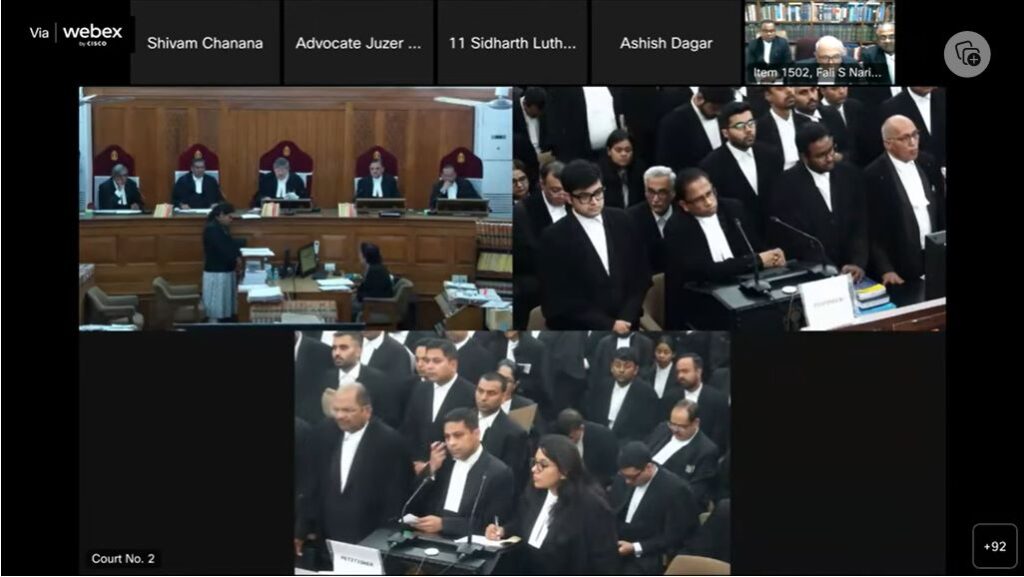New Delhi, March 22.
The Supreme Court has asked courts to exercise greater restraint in making adverse remarks against the parties in a case as they may end up damaging their reputations in the age of livestreaming of court proceedings.
Any adverse remarks must be with proper justification and only if it is necessary to meet the ends of justice, the top court said. The top court was speaking over remarks made against an IPS officer in a bail case from Karnataka involving corruption charges against deputy tehsildar P.S. Mahesh.
The High Court had sparked off a controversy when it had made sweeping remarks regarding corruption in the Anti-Corruption Bureau and its chief Seemant Kumar Singh. The ACB later arrested IAS officer J. Manjunath in connection with the bribery charges.
All three moved the top court against the High Court’s adverse comments which expunged these remarks and quashed the July 7, 2022, High Court order.
“Remarks passed in court, due to the live broadcasting of court proceedings, now have ramifications that are far reaching, and as can be seen in the present case, can cause great injury to the reputation of the parties involved,” the top court said.
Courts must make remarks against parties, if justified, in the right forum, if necessary for justice
“In such a circumstance, it is essential for the courts to be extremely cautious while passing adverse remarks against the parties involved, and must do so with proper justification, in the right forum, and only if it is necessary to meet the ends of justice.”
A two-judge bench, comprising Justices Krishna Murari and Ahsanuddin Amanullah, said that passing adverse remarks in a bail case against an unconnected party would cause them great harm without being given an actual and meaningful opportunity to defend themselves.
The bench criticised the High Court for passing remarks against Singh, the officer in charge of the investigation, and Manjunath on the ground that they were not parties in Mahesh’s bail plea.
Courts must stick to issues relevant to deciding bail; don’t have enough on unconnected parties
“… we are of the opinion that the actions of the High Court during the bail proceedings of a third party are manifestly arbitrary and unjust, and the High Court must have confined itself to the issues relevant to it for the purposes of deciding the bail of the Respondent No.1 (Mahesh).”
A court of bail, especially in cases where the bail is sought for by a third party, is not a court that has all the relevant information to pass an order on the merits of an unconnected party, and such an order, if passed, has the potential to cause great harm to the said party without them being afforded an actual and meaningful opportunity to defend themselves, it said.
“It is a well settled principle of law that any party, when being accused of an illegal act, must be given an opportunity be fairly heard. This opportunity to be meaningfully heard however has not been afforded to the Appellant No.2 (Singh)….”
“The legal system in general, and the judicial system in particular, has ushered into a new age of accessibility and transparency due to the adoption of virtual hearings and live telecasting of open court proceedings,” the court observed.
“These changes in the judiciary have ensured that the courts as redressal mechanisms have become more accessible to the common man than ever before.”
“The limitations of physical infrastructure, that has constrained the courts to a physical location, has often been cited as one of the main roadblocks in the path towards access to justice. This roadblock, however, has now been cleared due to the availability of technology and the adoption of the same.
“This never-before-seen transparency in the judicial system, while it brings with it great benefits, it also attaches with it a stricter standard of responsibility on judges while conducting such court proceedings.”

